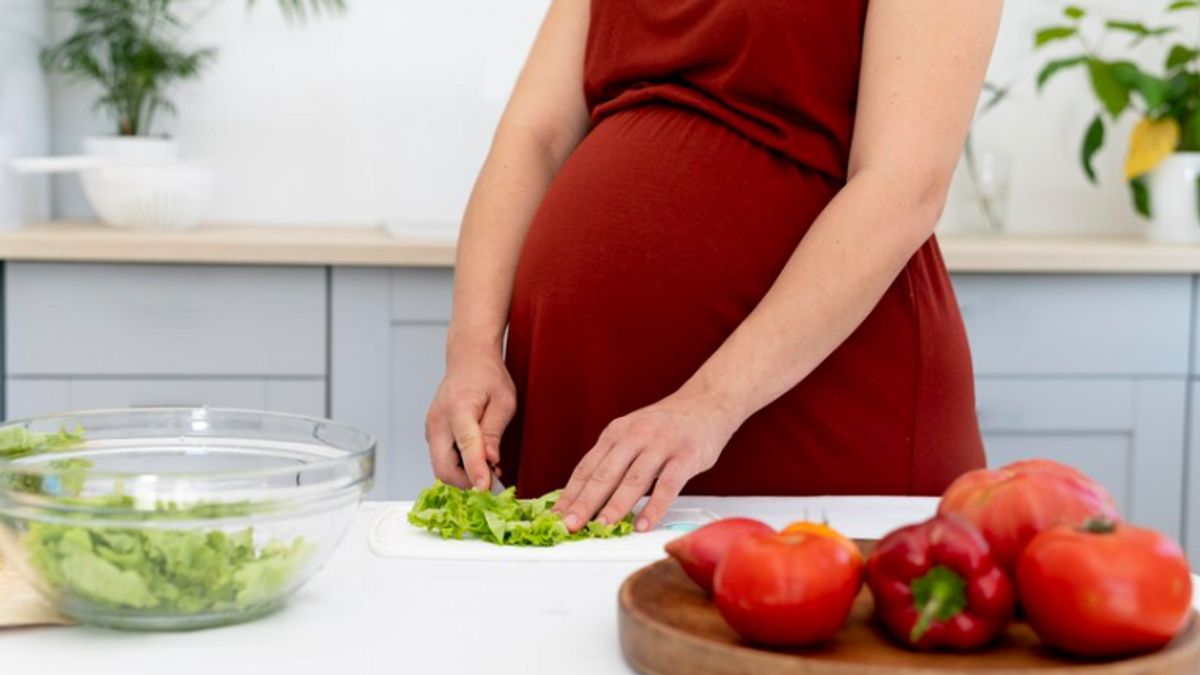
YOGYAKARTA - Pregnant women need to adopt a healthy lifestyle to maintain their health and womb. The nutritional intake of pregnant women is important to pay attention to. What are the nutritional needs of pregnant women that must be met?
What is consumed by pregnant women does not only affect their physical health, but also the fetus in the womb. Therefore, pregnant women need to eat nutritious foods during pregnancy. A nutritious intake can keep pregnant women healthy and help the growth and development of the fetus.
During pregnancy, usually the body of pregnant women will experience many physical and hormonal changes. Often the earth will experience several conditions, such as a decrease in appetite, and easy to feel nausea and vomiting. However, do not let pregnant women not eat or lack intake. Bumil still has to eat nutritious food.
With nutritious intake, pregnant women can have a good or smooth pregnancy and babies are born healthy. In addition, nutritional fulfillment is also useful for preventing various unwanted risks, such as declining health, complications during childbirth, infant defects, and stunting.
Here are the various nutrients that pregnant women need:
Pregnant women need to eat foods rich in fiber. This food can help pregnant women keep their weight stable and improve digestion. Considering that during the first tri semester of pregnancy, usually the earth is prone to constipation, so it requires high food intake.
Fiber-rich foods also play a role in controlling blood sugar levels and avoiding the risk of gestational diabetes. High-fiber foods that pregnant women need to consume, such as green leafy vegetables, nuts such as almonds, and wheat porridge (oatmeal).
Other nutrients that must be intake for pregnant women are carbohydrates. Carbohydrates function to energize the body of pregnant women. When digested in the stomach, carbohydrates will be converted into glucose which is the main source of body energy.
With sufficient energy, pregnant women can avoid fatigue and weakness quickly while undergoing pregnancy. In addition, glucose intake also plays an important role in supporting the growth process and development of the fetus in the womb.
The intake that pregnant women need to consume is foods with complex carbohydrates that are digested more slowly and do not spike blood sugar. Foods that can be selected, such as potatoes, wheat bread, and brown rice.
Pregnant women are also required to get sufficient protein intake. Protein functions to repair damaged tissues, cells, and muscles. In addition, protein also plays a role in increasing the supply of blood on the pregnant body.
Protein intake is also useful for supporting the optimal fetal growth and development process. High protein foods recommended for consumption, such as eggs, beef, milk, chicken, fish, seeds, and nuts.
Fat is also one of the nutrients that must be consumed by pregnant women. Fat is useful for fulfilling the energy of pregnant women and fetuses so that childbirth runs normally. Fat plays an important role in supporting fetal growth throughout the trimester of pregnancy, especially for brain and eye development.
Foods contain fat that pregnant women need to consume, such as salmon, nuts, and avocado. Avoid trans-fat sources from several types of foods, such as packaged foods, fried foods, to fast food.
Nutrients that are no less important for pregnant women to consume are calcium. Calcium is needed by pregnant women to support the growth of the bones and teeth of the fetus. High calcium foods recommended for consumption of pregnant women, such as milk, cheese, yogurt, almonds, broccoli, salmon, spinach, and so on.
Pregnant women also need to consume folic acid to prevent the risk of birth defects in babies. Folic acid also plays a role in preventing miscarriage, anemia, to premature birth. Foods contain folic acid that needs to be consumed, such as broccoli, pay, lemons, oranges, mangoes, melons, and so on.
Vitamin D is a mandatory intake for pregnant women. Vitamin D helps calcium absorption and supports the growth of fetal bones and teeth. Foods contain vitamin D which is consumed, such as eggs, fish, contracts, milk, and others.
Omega 3 and omega 6 fat acids play an important role in the development of the brain, nervous system, and baby vision. This intake also helps reduce the risk of premature birth. Foods that need to be consumed, such as eggs, fish, avocado, spinach, and others.
In addition to some of the nutrients above, the other nutritional intake that pregnant women need to consume is foods that contain vitamins C, iodine, zinc and kolin. These foods need to be consumed regularly according to the needs of pregnant women's intake.
Such is the review of the nutritional needs of pregnant women that must be met. Nutritional intake of pregnant women is very important to pay attention to so that pregnant women can undergo pregnancy to childbirth smoothly, and babies are born in good health. In addition, with the nutritional intake met, babies born will also avoid stunting considering stunting is a problem that still occurs a lot in Indonesia.
Stay up to date with the latest domestic and other overseas news on VOI. You present the latest and most updated nationally and internationally.
The English, Chinese, Japanese, Arabic, and French versions are automatically generated by the AI. So there may still be inaccuracies in translating, please always see Indonesian as our main language. (system supported by DigitalSiber.id)










